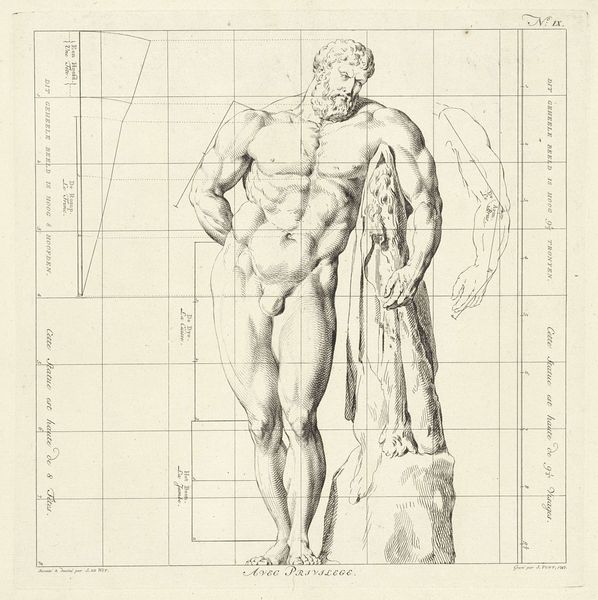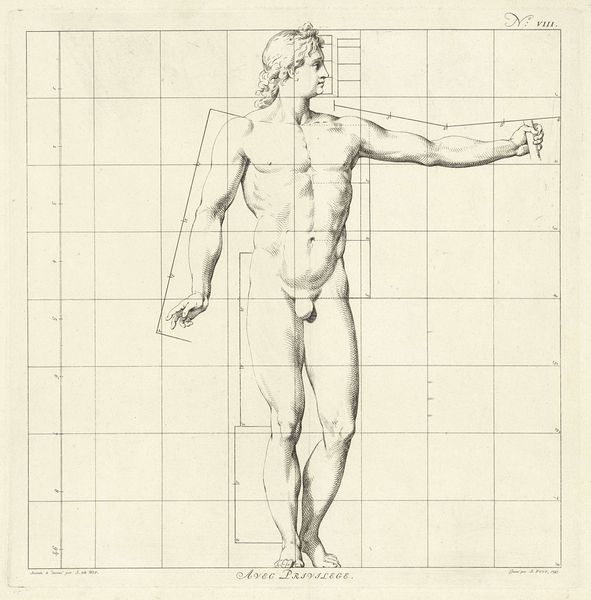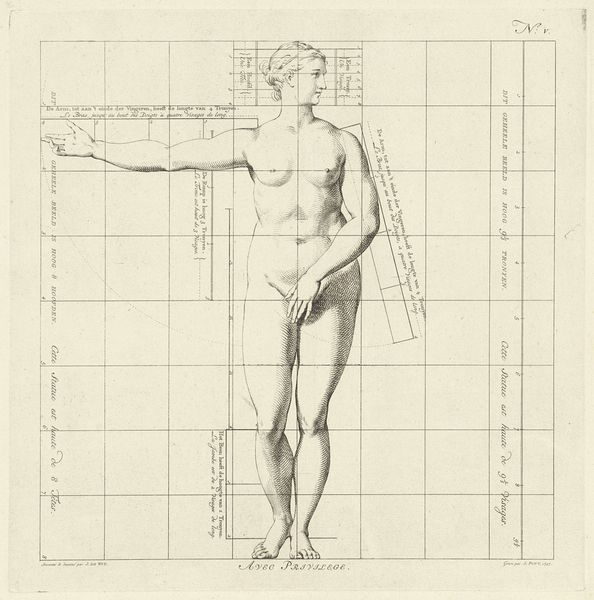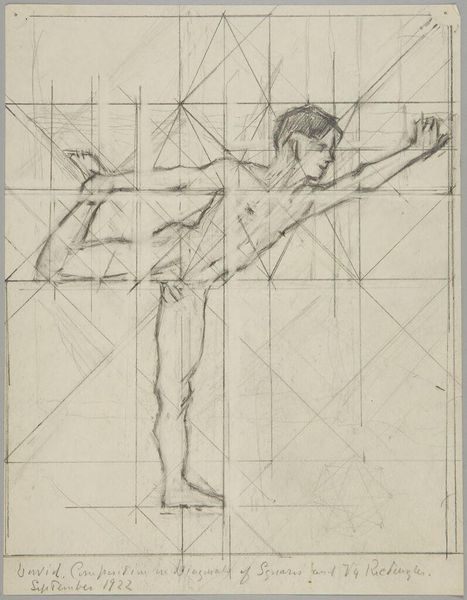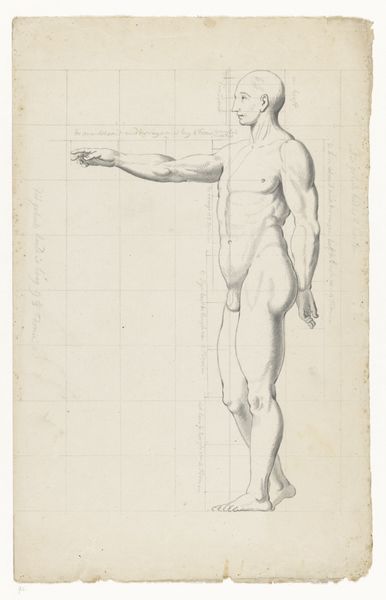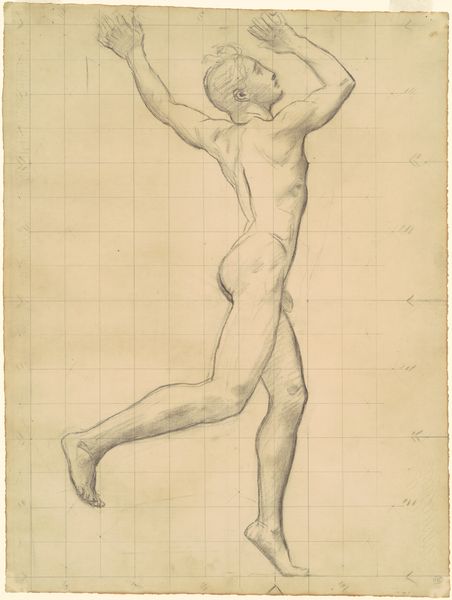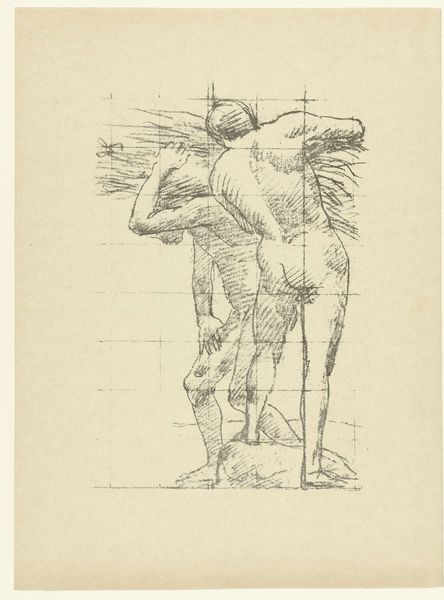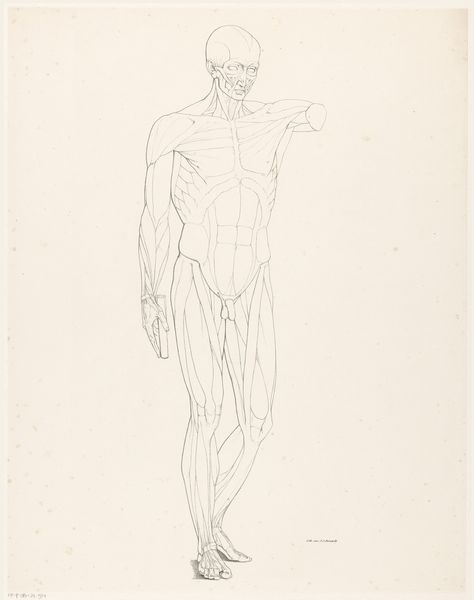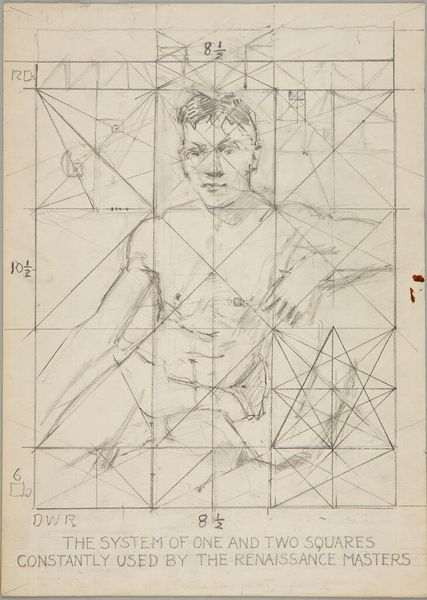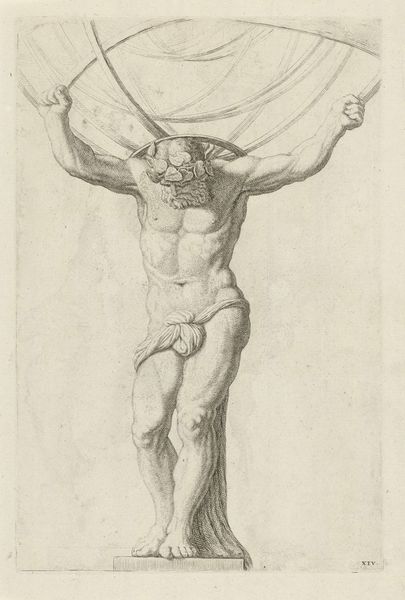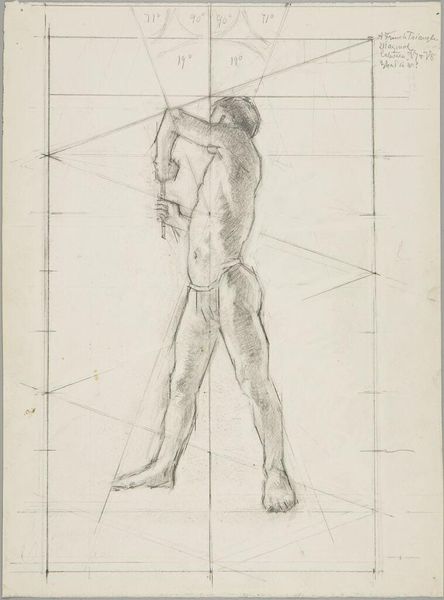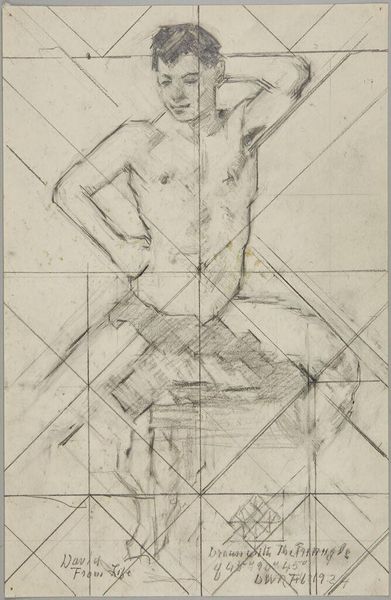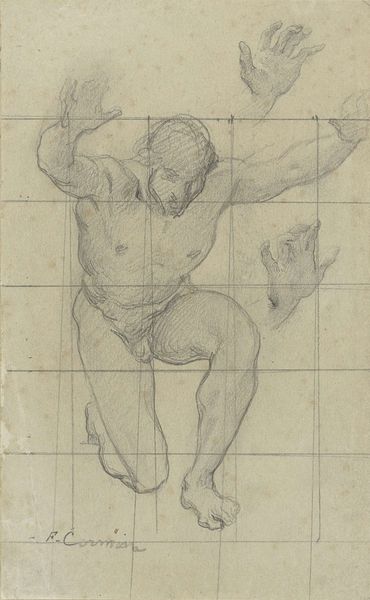
drawing, paper, pencil
#
portrait
#
drawing
#
pencil sketch
#
classical-realism
#
perspective
#
figuration
#
paper
#
form
#
pencil
#
line
#
sketchbook drawing
#
genre-painting
#
history-painting
#
academic-art
#
nude
Dimensions: height 389 mm, width 388 mm
Copyright: Rijks Museum: Open Domain
Curator: Let's consider Jan Punt's 1747 drawing, "Proportiestudie van het lichaam van een man." It's meticulously rendered in pencil on paper and resides at the Rijksmuseum. Editor: It's interesting how the artist renders the figure using this almost scientific grid system! What's your take on it? Curator: Precisely. Look at the paper itself - its size and the type used indicate a culture prioritizing accessible and reproducible knowledge. The grid normalizes and rationalizes the human form, reducing the body to a set of quantifiable relationships, something to be dissected and understood rather than celebrated as divine creation. This reveals societal shifts influenced by enlightenment ideals about control and mass-production. Editor: That's fascinating, like the body becoming a sort of proto-industrial template. Curator: Exactly! Consider the pencil, too. It allows for mass production of similar drawings, something much easier than etching and engraving. This wasn’t meant for a palace; it was meant to be handled, copied, re-interpreted – spread around workshops for easier art creation. Editor: That really does challenge the traditional "high art" status and forces us to think about accessibility in the art world. Is that accurate? Curator: You've got it! Thinking about materiality and accessibility offers an intriguing way to rethink our view of art from that period. It really goes to show us how art functions on a material and economic level. Editor: Definitely something to remember as I continue learning. Thanks for that different view, Curator. Curator: My pleasure. There is always more to be unearthed from an artistic practice than a purely "aesthetic" response.
Comments
No comments
Be the first to comment and join the conversation on the ultimate creative platform.

